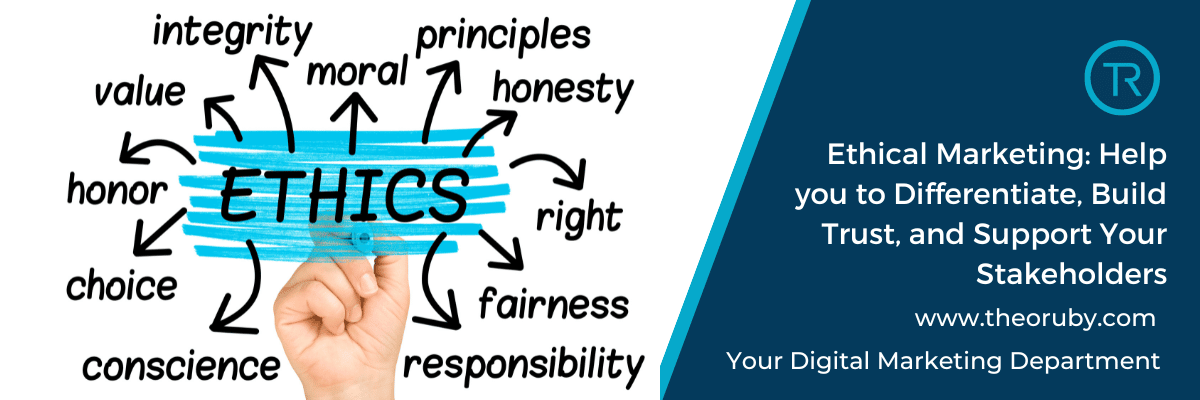
Ethical marketing is becoming more important than ever for businesses, whether it’s addressing issues about climate change or being more transparent about how it operates and sources it’s products. As a result, consumers are changing the way they shop and looking to support businesses that demonstrate corporate social responsibility and follow ethical practices. Generation Z and Millennials are avoiding fast fashion brands and looking to buy from small, independent, sustainable companies where ethical marketing plays an important role in their business strategies.
Why is ethical marketing so important in terms of brand differentiation and building trust? Read on to find out!
To successfully adopt ethical marketing, here are some steps for your business to follow by using the marketing mix. The marketing mix uses the 4 P’s: Product, Price, Promotion, and Place. You can apply ethical practices to each ‘P’:
Product: Think about how your product is manufactured and where your suppliers are based- are you paying a fair wage to get your product made? Are the materials that you’re using sustainable or are they contributing to environmental problems such as plastic that can’t be recycled. It’s your responsibility to be transparent with your customers if you want to build up trust.
Price: Be price transparent. Just because your product or service is ethical don’t take advantage of your customers. Whilst as a marketer you are allowed to charge any price, you need to make sure there is no price discrimination.
Promotion: Don’t make up statistics or facts when promoting your product as this can get you into a lot of trouble with the ASA and damage your brand reputation. Stating facts that aren’t true might mean getting fined or prosecuted.
Place: This is where you need to consider where your products are placed. If your product is made too easily accessible this could have a negative effect, especially if your product can cause addiction (alcohol, gambling, cigarettes). You also need to be careful when marketing your products to children or targeting certain groups that may be vulnerable.
Brand loyalty: Being transparent helps to build trust with your customers. This can lead to long term brand loyalty if you share the same values as the customer and can even help with word-of-mouth marketing.
Financial Help: Through ethical marketing your business may be able to grow faster and achieve its financial goals. Similarly, you may find it easier to get financial help from investors who want to invest in ethical businesses with innovative products and solutions.
Improved reputation: Ethical companies can build a positive reputation which they can use to their advantage in marketing campaigns. For example Lush has grown significantly over the past few years by being known as a standout ethical brand.
Increased sales: A company that behaves ethically may find it easier to generate higher sales levels as consumers like to associate themselves with ethical brands and may be prepared to pay more to purchase ethical products. If you have unethical practices, they won’t stay hidden for long and can damage your brands reputation.
For more information about ethical marketing and the importance of it, visit:
https://www.forrester.com/blogs/ethical-marketing-helps-brands-differentiate-and-build-trust/